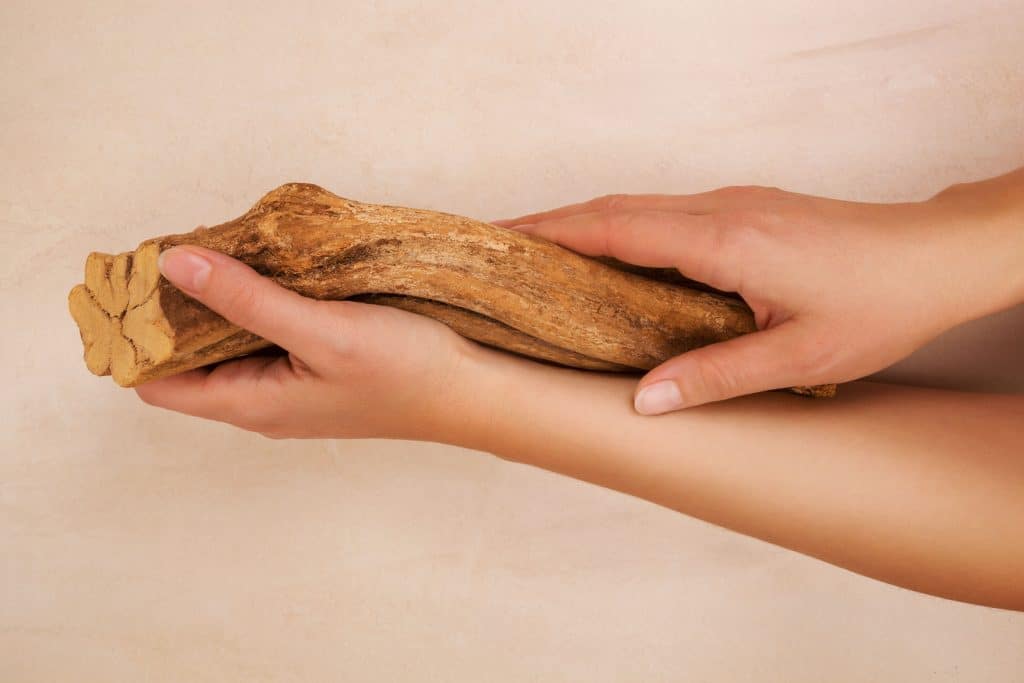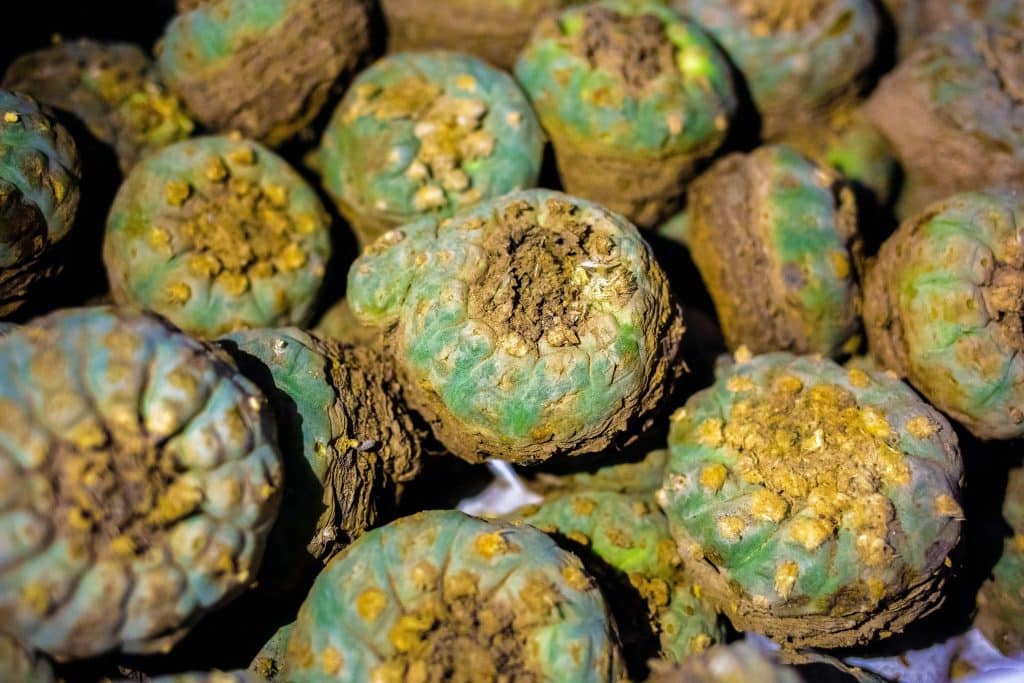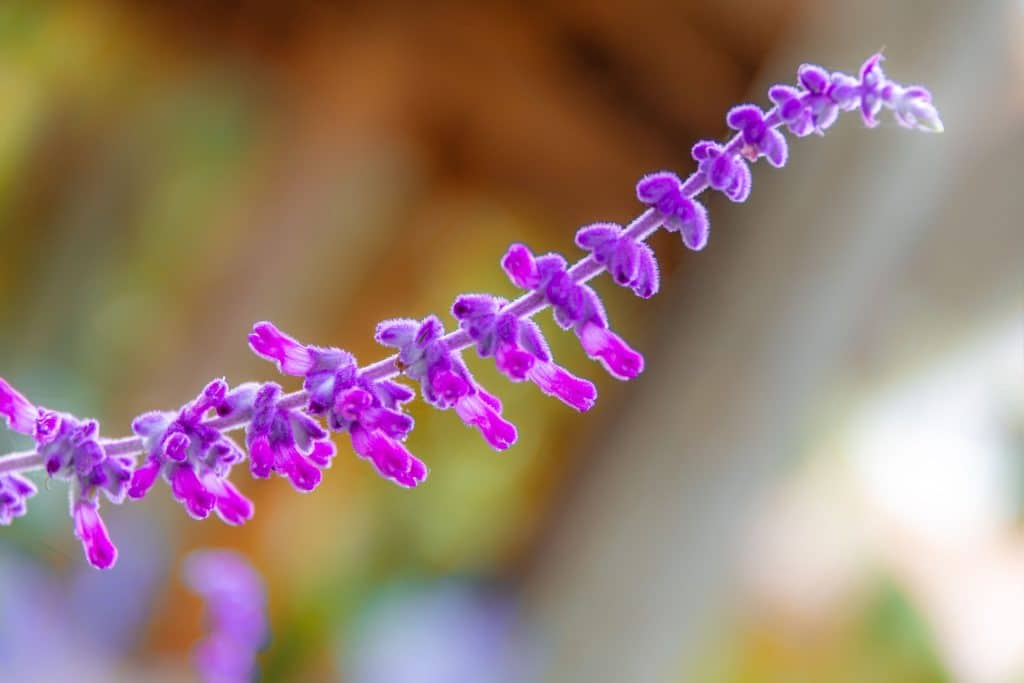The word ‘entheogenic’ might not have been very popular a few years ago, but it’s sure making headlines now. Why? Because more and more US locations are passing legalization and decriminalization measures for entheogenic plants. So what does this word mean? And which plants does it refer to? Read on.
Entheogenic plants – what are they?
The word ‘entheogen’ refers to any substance that can alter perception, mood, behavior, cognitive abilities, and/or consciousness. They are specifically psychoactive substances meant to help spiritual development, in some kind of religious or sacred way. Throughout history, such substances have been employed for religious, magical, shamanic, healing, or spiritual traditions, all over the globe.
Entheogens are used to drive forward different traditional practices meant to bring a person to a higher spiritual level. These include but are not limited to: meditation, yoga, healing, prayer, and divination. Psychedelics are one of the more popular forms of entheogens, but we’re not looking at all entheogens right now, and not all psychedelics qualify. What we’re specifically looking at is entheogenic plants, meaning this no longer includes synthetically made entheogens like LSD or MDMA.
The term ‘entheogen’ came about in 1979 by some ethnobotanists and mythology academics. It comes from the combination of two words from Ancient Greek: éntheos and genésthai. The former translates to “full of the god, inspired, possessed,” and is where we get the word ‘enthusiasm.’ While the latter translates to “to come into being.”
Thank you for stopping in. Head over to the Cannadelics Weekly Newsletter for direct updates; and get access to awesome deals on cannabis buds, vapes, edibles, smoking devices and equipment, cannabinoid compounds (HHC, delta-8), and so much more cool stuff. Go get stoned responsibly!
Put together, and it translates to the idea of being inspired; whether for greater spiritual understanding, personal growth, or something else related. The word ‘entheogen’ is sometimes confused for the words ‘psychedelic’, and ‘hallucinogen’, but its not exactly either, though it can encompass drugs of those specifications.
The term ‘entheogen’ is not more specific than this, partly because its not an actual part of nomenclature. Rather, it’s a broad term that can be used in different ways. Since it implies any psychoactive substance used for spiritual purposes, or some kind of personal development; it refers to many different substances, and personal opinions on whats included, can vary.
Some publications list entheogenic plants as plants with psychedelic properties alone. Other publications look at in terms of drugs used specifically in rituals. Regardless of exactly how you want to break it down, an entheogen is a plant with psychoactive effects, that’s used in some kind of traditional practice of spirituality or healing.
The most common plants that find their way into this definition include DMT, mescaline, psilocybin mushrooms, amanita mushrooms, iboga, and Salvia divanorum. But it can also include plants like kava, datura, and plants like African Dream Herb which is in a class called oneirogens, which are characterized by a dreamy state of consciousness.
Entheogenic plants in recent legislation
As hallucinogenic substances (often lumped together under the heading ‘psychedelics’) gain popularity, we see this reflected in new legislative measures that have already passed in different locations; which have been proposed, but didn’t make their way through; or are currently in the system. Different locations define what they want to legalize or decriminalize differently, but more and more often, there’s a designation specifically for entheogenic plants.
Right now, Colorado stands as the best example for changing legislation regarding entheogenic plants. In the November 2022 elections, the people of Colorado voted on Proposition 122, which passed with 53.64% of the voting public saying yes, meaning 1,296,992votes. 46.36% of the voting public – 1,121,124 votes – didn’t want this change.

The bill is called the Decriminalization, Regulated Distribution, and Therapy Program for Certain Hallucinogenic Plants and Fungi Initiative. This new law defines certain plants containing psychoactive and entheogenic compounds, as natural medicines, including DMT, ibogaine, mescaline (excluding peyote), psilocybin, and psilocin. The measure does not mention the word entheogen, but that’s exactly what it’s talking about.
It decriminalizes the personal possession, use, transport, and cultivation of the plants with the compounds mentioned above, so long as the user is 21 or above. It also creates the Regulated Natural Medicine Access Program which is to be an industry of regulated healing centers where these compounds will be administered as natural medicines.
Incidentally, as a showing of how much Colorado is in support of hallucinogens, it passed HB 1344, which was signed into law June 8th of 2022. This first-of-its-kind law pre-emptively legalized the medical use of MDMA, but is contingent on the federal government passing a legalization measure first, before it becomes valid. MDMA, however, as a synthetic drug, is not considered an entheogenic plant.
Did Oregon legalize entheogenic plants?
Oregon became the very first state to legalize a previously illegal entheogenic plant, when it put Measure 109 before its people, called the Psilocybin Mushroom Services Program Initiative. 55.75% of voters were all for this change, while 44.25% of voters were a bit more hesitant. This measure was not as well defined as Colorado’s upon the vote, and it wasn’t until 2022 that some things became clear. Although one point that was clear at voting time, was that this only applied to magic mushrooms.
When draft rules finally came out, they stipulated that not only is it only magic mushrooms allowed, but limited it to only one species: Psilocybe cubensis. Colorado, much like Oregon, is looking to set up treatment centers where the drugs can be given as natural medicine. Only, it seems Colorado is more geared to doing this medicinally, and Oregon doesn’t make that stipulation. How much Colorado allows ‘spiritual’ and ‘medical’ to overlap, is hard to say at the moment.
Colorado decriminalized the use of these plants as well for adults. Oregon did likewise through a different ballot measure called Measure 110, which decriminalized the personal possession of controlled substances, bringing them down to a class E violation which comes with no more than $100 in fines. Between Oregon’s two measures, and Colorado’s one, they do provide similar overage, with Colorado going just a bit farther for what it will offer in treatment centers. In neither state was a full recreational legalization made.

Where else is there legislation for entheogenic plants?
Different individual locations within the US have passed decriminalization measures for different hallucinogenic substances. These vary between locations in exactly what they permit. One of the more recent additions was San Francisco. In September 2022 its Board of Supervisors unanimously approved a resolution which doesn’t make a legal change, but which does instruct law enforcement to put possession and use of the included plants as the lowest priority for arrest. And it does specifically define them as entheogenic.
The resolution, called Supporting Entheogenic Plant Practices (resolution 220896), decriminalizes the “full spectrum of plants, fungi, and natural materials that can inspire personal and spiritual well-being.” It even stipulates that this covers “planting, cultivating, purchasing, transporting, distributing, engaging in practices with” these plants. This decriminalization does nothing to limit punishment for drugs like LSD and MDMA.
Seattle did something similar in October 2022, also not making it fully legal, but passing a resolution which states “that the investigation, arrest, and prosecution of anyone engaging in entheogen-related activities should be among The City of Seattle’s lowest law enforcement priorities and stating the Council’s support for full decriminalization of these activities.”
Detroit also went the way of specifically decriminalizing entheogenic plants. Voter measure Proposal E, which was voted in on November 2nd, 2021, asked the question: “Shall the voters of the City of Detroit adopt an ordinance to the 2019 Detroit City Code that would decriminalize to the fullest extent permitted under Michigan law the personal possession and therapeutic use of Entheogenic Plants by adults and make the personal possession and therapeutic use of Entheogenic Plants by adults the city’s lowest law-enforcement priority?” The city responded yes with 61.08% of the voting population onboard with this.
On a state level, Michigan attempted to legalize some hallucinogens, but the bill was defeated last spring. California also attempted a psychedelics legalization, but the bill tanked out as well. It has, however, come back, introducing Senate Bill 58 in December which would “decriminalize the possession and personal use of certain psychedelic drugs.” These include “psilocybin, psilocyn, Dimethyltryptamine (“DMT”), mescaline (excluding peyote), and ibogaine.”
Washington also had a failed bill to legalize psychedelics, and is also already back in the saddle with the “Psilocybin Services Wellness and Opportunity Act” which was introduced on January 11th, 2023. The bill aims to “facilitate the establishment of safe, legal, and affordable psilocybin service centers to provide citizens of Washington who are at least 21 years of age with opportunities for supported psilocybin experiences for wellness and personal growth.”

Conclusion
The term ‘entheogens’ includes many different substances. Many of these substances, particularly of the entheogenic plant variety, are now making their way to decriminalized or legal status; as hallucinogens in general rise in popularity.
Thanks for making your way over! We appreciate you stopping in at Cannadelics.com; where we work to bring you the best in independent news coverage for the cannabis and psychedelics spaces. Visit us regularly for daily news injections, and sign up to the Cannadelics Weekly Newsletter, so you’re always on top of what’s going on.
The post <strong>The Rise of Entheogenic Plants: What They Are, And Changing Policies</strong> appeared first on Cannadelics.
Via https://cannadelics.com/2023/01/18/the-rise-of-entheogenic-plants-what-they-are-and-changing-policies/
source https://rosalinaklerkx.weebly.com/blog/the-rise-of-entheogenic-plants-what-they-are-and-changing-policies
No comments:
Post a Comment